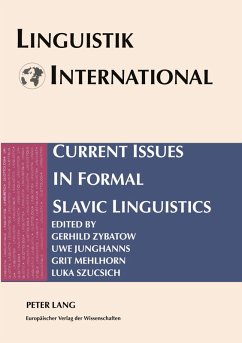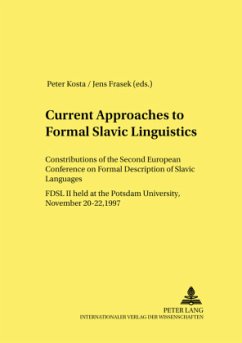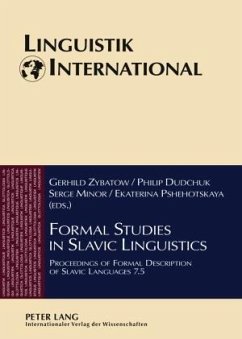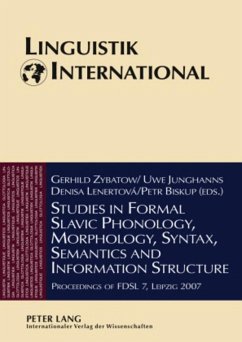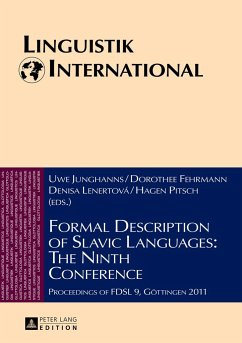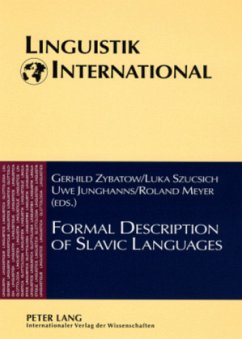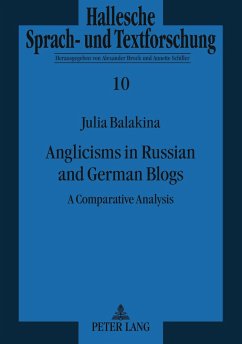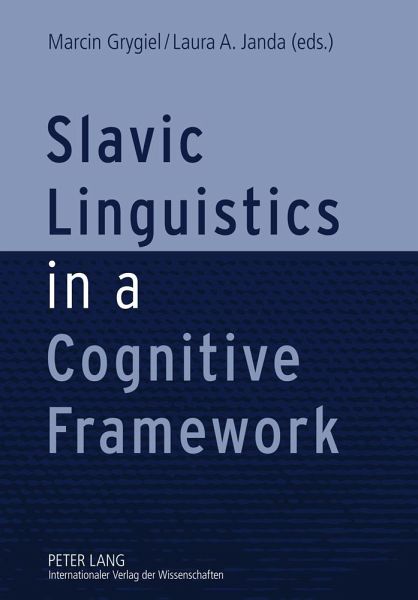
Slavic Linguistics in a Cognitive Framework
Versandkostenfrei!
Versandfertig in 6-10 Tagen
81,70 €
inkl. MwSt.

PAYBACK Punkte
0 °P sammeln!
Cognitive Linguistics offers an enticing possibility to approach time-honored linguistic problems from a new standpoint and view them in a new dimension. Proving this theory, all contributions in this volume are Slavic-oriented and thoroughly grounded in the framework of Cognitive Linguistics. The volume is composed of three thematic sections - grammar, semantics and discourse analysis with applied linguistics - representing fields of interest and simultaneously corresponding to levels of linguistic organization. The book offers studies on completability as an important parameter in the descri...
Cognitive Linguistics offers an enticing possibility to approach time-honored linguistic problems from a new standpoint and view them in a new dimension. Proving this theory, all contributions in this volume are Slavic-oriented and thoroughly grounded in the framework of Cognitive Linguistics. The volume is composed of three thematic sections - grammar, semantics and discourse analysis with applied linguistics - representing fields of interest and simultaneously corresponding to levels of linguistic organization. The book offers studies on completability as an important parameter in the description of the Russian aspect system, application of Langacker's theory of subjectification to the analysis of Russian perfective, interaction between aspect and modality in Slavic, morphological case architecture in Slovak, Czech dative-marked nominals, Russian instrumental of comparison, affirmation, possessive-locative constructions in Macedonian, lexical semantics, spoken discourse, metaphorical expressions in legal language and lexicography.



